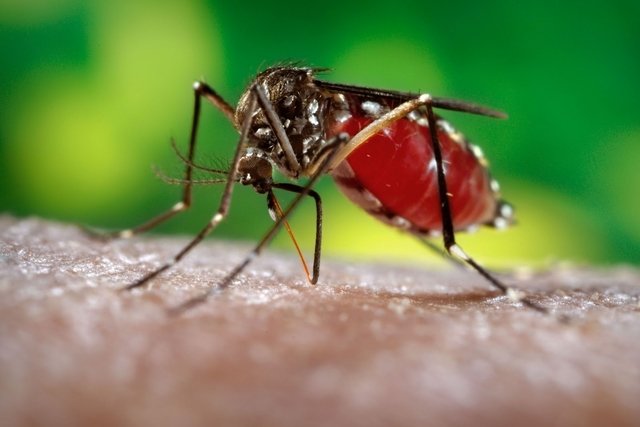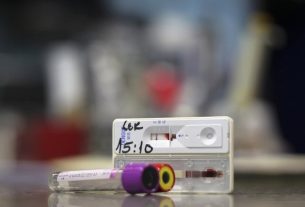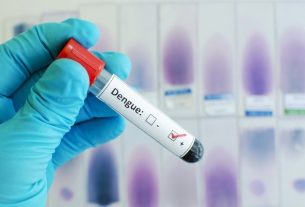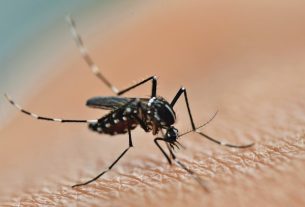Dengue treatment may involve measures such as avoiding exertion and drinking plenty of fluids, the use of oral rehydration serum, antipyretic or analgesic medications and, in the most serious cases, injection of serum directly into the vein and blood transfusions.
Dengue is a disease caused by a virus that is transmitted through the bite of the Aedes aegypti mosquito and can cause symptoms such as fever, body pain and vomiting, and, in more serious cases, there may also be bleeding, this type of dengue known as dengue hemorrhagic fever. Know the main symptoms of dengue.
Therefore, the treatment of classic or hemorrhagic dengue fever must always be carried out with medical guidance, in accordance with the recommendation of the Ministry of Health, to avoid complications, such as severe dehydration, liver and heart problems.

Classic dengue treatment
Classic dengue treatment may involve:
- Avoid excessive effortresting whenever possible;
- Drink plenty of fluidsto avoid dehydration;
- Use oral rehydration serumespecially in case of vomiting or diarrhea;
- Use analgesics and antipyreticssuch as paracetamol or dipyrone, in case of pain or fever, according to the doctor’s instructions;
- Antiemetic medicationssuch as metoclopramide or bromopride, in case of nausea or vomiting;
- Antihistamine medicationssuch as dexchlorpheniramine or loratadine, which may be indicated in case of intense itching on the body.
In addition, it is generally recommended to return to the health service 72 hours after starting treatment or earlier if symptoms such as severe abdominal pain and bleeding appear or in case of persistent vomiting despite the use of medication. See more remedies recommended for dengue fever.
Treatment of dengue hemorrhagic fever
The treatment of hemorrhagic dengue fever is generally carried out in the hospital, and may involve the use of serum directly into the vein and the same medications that are indicated in classic dengue fever to relieve pain and fever, such as paracetamol or dipyrone.
In cases where a person loses a lot of blood, a blood transfusion may also be indicated to replace the volume lost in the body or platelets, if they are very low.
Furthermore, in more serious cases, especially when the person presents drowsiness, low blood pressure and cold extremities or when they do not respond well to initial treatment, admission to the ICU may be indicated.
Complementary treatment
The use of teas, such as chamomile tea, St. John’s wort or horseradish, can be recommended to complement the treatment indicated by the doctor, as they help to reduce symptoms and strengthen immunity. See more home remedies for dengue fever.
It is also recommended to maintain an adequate diet, preferring light and easily digestible foods, in addition to avoiding the consumption of soft drinks, alcoholic drinks and sweets, as they can worsen symptoms, such as nausea or vomiting. Know what to eat to recover from dengue.
Possible complications
The main complication of dengue is the development of dengue hemorrhagic fever. However, dengue can also harm the functioning of the liver or heart, cause convulsions and encephalitis, for example, in some people. Find out about all the complications and consequences that dengue can cause.
Signs of improvement and worsening
Signs of improvement in dengue are a decrease in fever and relief of body pain and usually appear up to 8 days after the onset of symptoms. Check how long dengue fever lasts.
Signs of worsening dengue fever include frequent vomiting, intense pain in the abdomen, low blood pressure, drowsiness, racing heart, cold hands and feet, red spots on the skin and bleeding, for example.
When to go to the hospital
Dengue treatment should be carried out in the hospital in case of:
- People over 65;
- Children under 2 years old;
- Pregnant women;
- People with illnesses such as high blood pressure, heart or kidney failure and diabetes.
In these cases, dengue fever may be more serious, and hospitalization may be recommended to monitor the person’s recovery and prevent the emergence of complications that could put life at risk.
Bibliography
- STATPEARLS. Dengue Fever. 2022. Available at: <https://www.ncbi.nlm.nih.gov/books/NBK430732/>. Accessed on January 5, 2023
- KULARATNE, Senanayake A; DULUGAMA, Chamara. Dengue infection: Global importance, immunopathology and management. Clin Med (Lond). Vol.22, n.1. 9–13, 2022
- VERDEAL, JCR; et al. Guidelines for the management of patients with severe forms of dengue. Rev Bras Ter Intensive. 23. 2; 125-133, 2011
- WORLD HEALTH ORGANIZATION 2. Handbook for clinical management of dengue. 2012. Available at: <https://apps.who.int/iris/bitstream/handle/10665/76887/9789241504713_eng.pdf>. Accessed on March 8, 2021
- WORLD HEALTH ORGANIZATION. Dengue: guidelines for diagnosis, treatment, prevention and control — New edition. 2009. Available at: <https://www.who.int/tdr/publications/documents/dengue-diagnosis.pdf>. Accessed on March 8, 2021
- MINISTRY OF HEALTH/ HEALTH SURVEILLANCE SECRETARIAT. Dengue: diagnosis and clinical management – adults and children. 5 ed. Brasilia DF. 2016. Available at: <https://www.slideshare.net/gersonsouza2016/dengue-diagnstico-e-manejo-clnico-adulto-e-criana-98666179>. Accessed on Feb 24, 2020

Sign up for our newsletter and stay up to date with exclusive news
that can transform your routine!
Warning: Undefined array key "title" in /home/storelat/public_html/wp-content/plugins/link-whisper-premium/templates/frontend/related-posts.php on line 12
Warning: Undefined array key "title_tag" in /home/storelat/public_html/wp-content/plugins/link-whisper-premium/templates/frontend/related-posts.php on line 13



